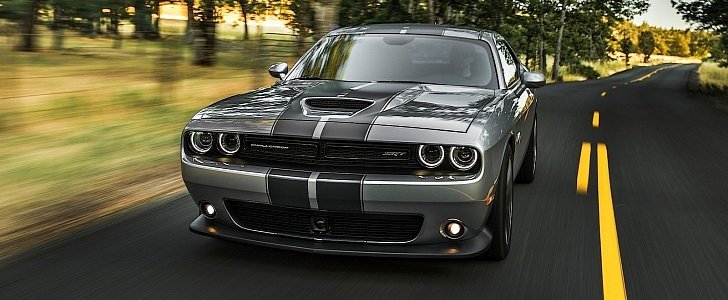Muscle cars are made to put a smile on your face. Some of them are fun to drive outside of a straight line, and even come with practical features. Most modern models from this category can be daily driven without any concern or hassle.
However, there is something that people thought would happen to muscle cars, in the form of a plunge in resale value, which does not occur that abruptly like with regular vehicles.
While consumers are focused on SUVs, the market for regular cars has dropped, and the values or “unspecialized” models have seen declines that exceeded predictions.
Meanwhile, a Chevrolet Camaro, Dodge Challenger, or Ford Mustang with three years of age will retain significantly more value (percentage-wise) on resale.
The analysis comes from Kelley Blue Book, an independent authority on the matter. As one of their representatives has explained, the muscle car renaissance was initially expected to be a fad, but sales are strong and values are holding up.
Eric Ibara, the KBB representative quoted by USA Today, said that muscle cars are an even better value than new on the second-hand market, as they provide power, fun and excitement in copious amounts in comparison to their price.
The same representative stated that a legendary trio from Chevrolet, Ford, and Dodge retain between 48 and 49 percent of their value after three years of use.
According to the quoted Kelley Blue Book representative, three-year-old vehicles typically keep between about 40% of their value, with some sitting in the high 30s, percentage-wise.
Evidently, the figures above apply to cars that have seen regular maintenance, have no accidents in their timeline, and have a reasonable level of wear. One of the reasons why muscle cars retain their value over the years if they have been looked after (i.e., not driven into crowds after leaving a parking lot) is that they have a loyal fan base.
These people will be interested in buying a muscle car since the model comes on the market, and most will acquire their dream ride when the financial opportunity arises.
It is worth noting that Americans are not buying as many muscle cars as they used to, which is worrisome since Detroit’s Big Three watches sales figures and might not invest lots of money in the next generations of the muscle triplets.
While consumers are focused on SUVs, the market for regular cars has dropped, and the values or “unspecialized” models have seen declines that exceeded predictions.
Meanwhile, a Chevrolet Camaro, Dodge Challenger, or Ford Mustang with three years of age will retain significantly more value (percentage-wise) on resale.
The analysis comes from Kelley Blue Book, an independent authority on the matter. As one of their representatives has explained, the muscle car renaissance was initially expected to be a fad, but sales are strong and values are holding up.
Eric Ibara, the KBB representative quoted by USA Today, said that muscle cars are an even better value than new on the second-hand market, as they provide power, fun and excitement in copious amounts in comparison to their price.
The same representative stated that a legendary trio from Chevrolet, Ford, and Dodge retain between 48 and 49 percent of their value after three years of use.
According to the quoted Kelley Blue Book representative, three-year-old vehicles typically keep between about 40% of their value, with some sitting in the high 30s, percentage-wise.
Evidently, the figures above apply to cars that have seen regular maintenance, have no accidents in their timeline, and have a reasonable level of wear. One of the reasons why muscle cars retain their value over the years if they have been looked after (i.e., not driven into crowds after leaving a parking lot) is that they have a loyal fan base.
These people will be interested in buying a muscle car since the model comes on the market, and most will acquire their dream ride when the financial opportunity arises.
It is worth noting that Americans are not buying as many muscle cars as they used to, which is worrisome since Detroit’s Big Three watches sales figures and might not invest lots of money in the next generations of the muscle triplets.





